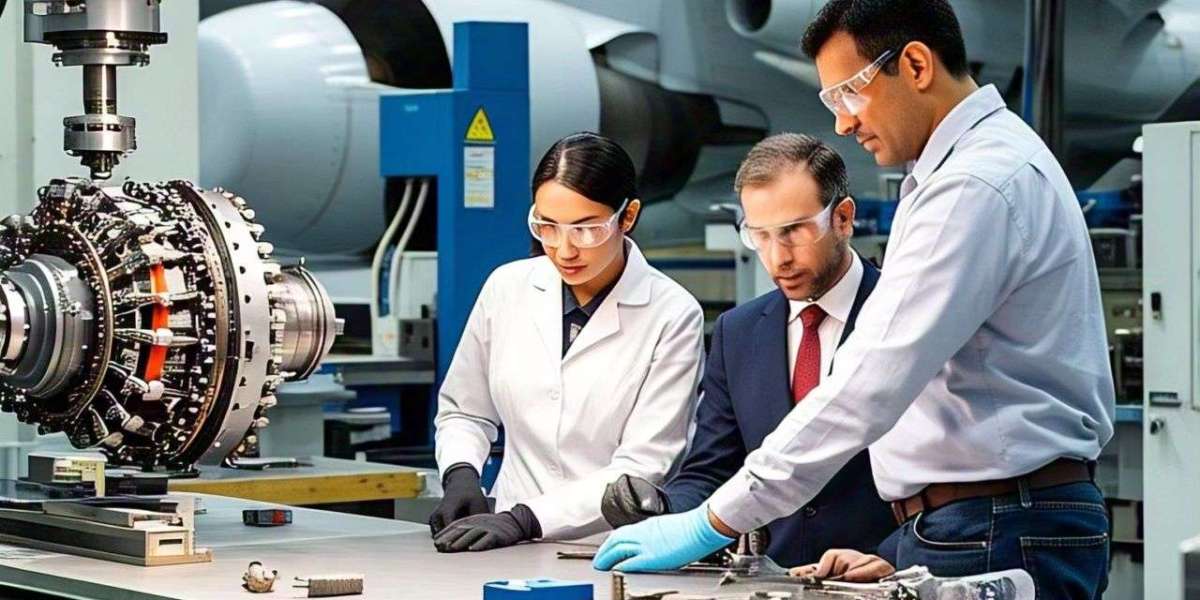Precision manufacturing plays a critical role in aerospace engineering, where even the smallest mistake can lead to serious problems. In this high-stakes industry, every part must meet strict standards for accuracy, strength, and performance. Precision manufacturing ensures that aircraft parts fit perfectly, operate safely, and last a long time. As technology advances, the aerospace industry demands even greater precision to build lighter, faster, and stronger vehicles. In this article, we will explore how precision manufacturing supports the aerospace sector, the challenges involved, and why it is essential for modern engineering success.
1. What Is Precision Manufacturing in Aerospace?
Precision manufacturing refers to the process of producing components with extremely tight tolerances and exact specifications. In aerospace, this is more important than almost anywhere else because parts must perform under extreme conditions like high speeds, intense pressures, and rapid temperature changes.
Main Aspects of Precision Manufacturing:
- Tight Tolerances: Aerospace parts often require tolerances within a few microns.
- High Material Standards: Metals like titanium, Inconel, and aerospace-grade aluminum are commonly used.
- Advanced Techniques: CNC machining, 5-axis milling, and EDM (Electrical Discharge Machining) are frequent methods.
Interesting Fact:
An average commercial jetliner contains over 6 million parts, many of which are made through precision manufacturing methods.
2. Why Precision Manufacturing is Crucial for Aerospace
Precision manufacturing is not just important—it is necessary for the safety and reliability of aircraft. Even the smallest deviation in a part can cause failure, leading to major risks.
Key Reasons Precision is Essential:
- Safety: Aerospace components must operate flawlessly under harsh conditions.
- Efficiency: Lightweight, precise parts help reduce fuel consumption.
- Durability: High-quality manufacturing increases the lifespan of aircraft components.
Statistic:
According to industry reports, over 75% of aerospace failures can be linked to material or manufacturing errors, highlighting the need for precision at every stage.
3. Challenges in Aerospace Precision Manufacturing
Meeting aerospace standards is incredibly difficult and requires overcoming several challenges.
Manufacturers must use special techniques and strict quality control to achieve the required results.
Major Challenges Include:
- Material Hardness: Aerospace metals are tough to machine without specialized equipment.
- Complex Designs: Parts often have intricate shapes that require advanced machining tools.
- Quality Certifications: Companies must meet standards like AS9100 and ISO 9001 to supply parts to aerospace firms.
Interesting Fact:
Titanium, a metal widely used in aerospace, is 45% lighter than steel but just as strong, making it perfect for aircraft parts—yet it’s one of the hardest materials to machine accurately.
4. Technologies Powering Aerospace Precision Manufacturing
Modern technology plays a big role in helping manufacturers meet aerospace demands.
Without these advanced tools and methods, it would be impossible to achieve the level of precision required.
Important Technologies in Use:
- 5-Axis CNC Machining: Allows cutting from multiple angles, making it ideal for complex aerospace parts.
- Additive Manufacturing (3D Printing): Used for creating lightweight components quickly.
- Non-Destructive Testing (NDT): Ensures parts are defect-free without damaging them.
- CAD/CAM Software: Helps design and control manufacturing with extreme accuracy.
Statistic:
The use of 5-axis CNC machines has improved aerospace part production efficiency by up to 30%, while reducing the error rate by 40%.
5. The Future of Precision Manufacturing in Aerospace
The future of precision manufacturing in aerospace looks bright, driven by new technology and a push for even higher standards.
Manufacturers are constantly adopting new ways to make parts faster, lighter, and stronger.
Trends Shaping the Future:
- Automation: Robotics and AI are helping to streamline production.
- Smart Materials: New alloys and composites are being developed for better performance.
- Sustainability: Green manufacturing practices are becoming more important in aerospace.
Interesting Fact:
By 2030, it’s expected that over 40% of aerospace components will be made using additive manufacturing, helping to reduce waste and lower production costs.
Conclusion
Precision manufacturing is the backbone of the aerospace industry, ensuring that every part meets strict standards for safety, performance, and durability. With the help of advanced technology and highly skilled engineers, manufacturers are able to meet the extreme demands of modern aerospace engineering. As the industry continues to evolve, precision manufacturing will play an even bigger role, driving innovation and helping build the next generation of aircraft and space vehicles.
FAQs
1. What is precision manufacturing in aerospace?
Precision manufacturing in aerospace involves creating parts with very tight tolerances and high accuracy, ensuring safety and performance under extreme conditions.
2. Why is precision manufacturing important for aircraft?
Precision manufacturing is crucial for aircraft because even small errors can cause part failures, leading to safety risks and reduced efficiency.
3. What materials are used in aerospace precision manufacturing?
Materials like titanium, aerospace-grade aluminum, and Inconel are commonly used because of their strength, lightweight properties, and ability to withstand extreme conditions.
4. How does technology help in precision manufacturing?
Technologies like 5-axis CNC machining, additive manufacturing, and CAD/CAM software help manufacturers create complex and highly accurate parts for aerospace applications.
5. What future trends are shaping aerospace precision manufacturing?
Trends like automation, the use of smart materials, and sustainable manufacturing practices are shaping the future of aerospace precision manufacturing.


